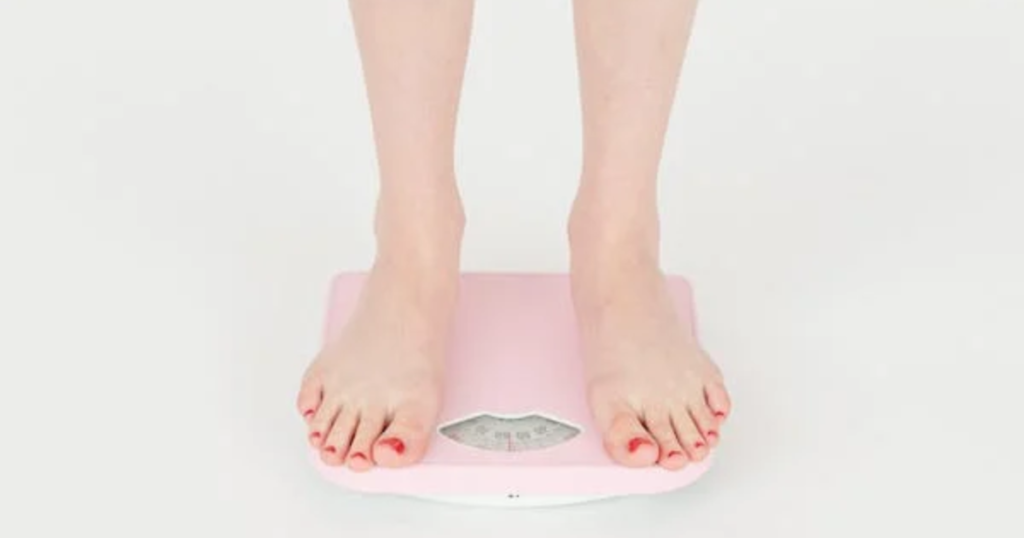Does Buspirone Cause Weight Gain?

Buspirone is a medication commonly prescribed to treat anxiety disorders, such as generalized anxiety disorder (GAD) or panic disorder. It belongs to a class of drugs known as azapirones and works by affecting certain neurotransmitters in the brain, particularly serotonin, and dopamine. While buspirone is generally well-tolerated and has a lower risk of causing side effects compared to some other anxiety medications, weight gain is a potential concern for some individuals.
Introduction to Buspirone
A frequent medicine recommended to treat anxiety disorders like panic disorder and generalized anxiety disorder (GAD) is buspirone. It is used to treat anxiety symptoms such as excessive worry, tension, and uneasiness. It is a member of the azapirones pharmacological class.
Buspirone does not fall under the same class of medications as benzodiazepines, which are another class of drugs that are frequently used to treat anxiety. It also functions in the body differently. Buspirone affects the brain’s serotonin and dopamine receptors as opposed to benzodiazepine-sensitive gamma-aminobutyric acid (GABA) receptors.
Buspirone exerts its anxiolytic (anxiety-reducing) effects by partially activating serotonin (5-HT1A) receptors through binding to them. It also has an impact on dopamine receptors, albeit its exact mode of action is still unknown.
Buspirone Mechanism of Action
Usually used to treat anxiety disorders like panic disorder and generalized anxiety disorder (GAD), buspirone is also marketed under the brand name BuSpar. It acts on the brain’s neurotransmitters, namely dopamine and serotonin, and is a member of the azapirone treatment class.
Buspirone’s exact mode of action is unknown, although it is thought to work by attaching to and activating serotonin (5-HT1A) receptors in the brain to produce its anxiolytic (anxiety-reducing) effects. Buspirone reduces anxiety symptoms by modulating serotonin activity in specific brain regions linked to mood control by partially activating these receptors.
Buspirone impacts dopamine receptors in addition to serotonin receptors, though it’s unclear exactly how dopamine functions in the drug’s mechanism of action. However further investigation is required to completely understand this part of buspirone’s action. It is believed that the drug’s activity at dopamine receptors may play a role in its anxiolytic effects.
Factors That Affect Weight Gain on Buspirone
Whether a person gains weight while using buspirone depends on several factors, such as:
- Individual physiology: Different individuals may be more susceptible to weight gain due to genetic or metabolic differences.
- Dosage: Higher doses of buspirone may cause changes in appetite or weight.
- Duration of treatment: Long-term use of buspirone may lead to weight gain due to changes in metabolism or other physiological factors.
- Concurrent medications: Other medications may interact with buspirone or affect appetite and metabolism, increasing the risk of weight gain.
- Lifestyle factors: A balanced diet, regular physical activity, and a healthy lifestyle can mitigate the risk of weight gain.
- Underlying medical conditions: Certain conditions like thyroid disorders or metabolic conditions can affect weight regulation.
- Age and gender: Older adults and women may be more prone to weight gain due to hormonal changes or age-related metabolic changes.
- Treatment adherence: Consistent or skipped doses can affect the effectiveness and potential side effects of buspirone.
It’s crucial to understand that taking buspirone can rarely result in weight gain. This only happens to a small percentage of users. Speak with your doctor if you’re concerned that taking buspirone or any other medication could cause you to gain weight. They can offer you guidance that is best for your needs and well-being.
How to Manage Weight Gain on Buspirone?
Changing one’s lifestyle and employing preventative measures are key to managing weight gain while taking buspirone. Using buspirone to gain weight can be managed with these tips:
- Monitor diet: Maintain a balanced diet rich in fruits, vegetables, whole grains, lean proteins, and healthy fats. Avoid processed foods, sugary snacks, and high-calorie beverages.
- Practice portion control: Use smaller plates and utensils and listen to hunger and fullness cues.
- Stay active: Engage in regular physical activity to burn calories and maintain a healthy weight.
- Incorporate strength training: Build muscle mass and increase metabolism with resistance training.
- Stay hydrated: Drink plenty of water throughout the day and limit sugary and high-calorie drinks.
- Limit alcohol intake: Choose lower-calorie options or limit alcohol consumption.
- Monitor weight: Regularly track weight to identify potential weight gain.
- Discuss alternatives with a healthcare provider: Discuss alternative treatment options if weight gain becomes a significant concern.
- Seek support: Seek guidance from a registered dietitian, therapist, or support group.

Clinical Studies on Buspirone and Weight Gain
There is a paucity of clinical studies explicitly investigating the connection between buspirone and weight gain. Although buspirone side effects related to weight gain are uncommon. Some research has looked into how the medication may affect appetite and weight.
A rat study that looked at the effects of buspirone on food intake and body weight was published in the journal Psychopharmacology. Researchers discovered that the rats’ food intake and body weight decreased when they were given buspirone on a long-term basis. It’s crucial to remember that results from studies on animals do not necessarily apply to people, and more investigation is required to validate these conclusions in human participants.
A research published in the Journal of Clinical Psychiatry examined the effects of the medication buspirone on individuals with anxiety. It was discovered that some buspirone users experienced decreased appetite and weight loss. Nonetheless, the trial was tiny and did not compare to a group that did not take the medication. Because it poses the question, does buspirone make you gain weight, it is significant.
What Are The More Common Side Effects of Buspirone?
The more common side effects of buspirone include:
- Dizziness: One of the most frequent adverse effects of buspirone is feeling lightheaded or dizzy, especially when getting up abruptly from a sitting or sleeping position.
- Headache: Although this side effect is usually mild and temporary, some people may have headaches when using buspirone.
- Nausea: Buspirone side effects might include nausea and upset stomach, especially when the medicine is first started or when the dose is changed.
- Nervousness: When using buspirone, some people may have increased jitters or anxiety, particularly in the beginning phases of the medication.
- Lightheadedness: Another common side effect of buspirone is feeling weak or lightheaded, especially after standing up suddenly.
- Insomnia: Buspirone may cause difficulty sleeping or staying asleep, while this adverse effect is generally less prevalent than those of other drugs used to treat anxiety.
- blurred vision: Although this side effect is comparatively uncommon, buspirone may temporarily alter eyesight, leading to blurred vision or difficulty focusing.
- Fatigue: when buspirone has fewer side effects than other drugs used to treat anxiety, some people may suffer fatigue or drowsiness when taking the drug.
It’s crucial to remember that not everyone using buspirone will have these side effects. And some people may have other negative effects not included here. Make sure to let your doctor know if you have any unsettling or enduring side effects with buspirone so they can provide you with more assessment and advice. They can assist in determining whether the side effects are caused by the drug and help you modify your treatment plan as needed.
Comparative Analysis with Other Anxiolytics
The risk of weight gain differs between buspirone and other anxiolytics, including selective serotonin reuptake inhibitors (SSRIs) and benzodiazepines.
Over time, benzodiazepines which include drugs like lorazepam (Ativan) and alprazolam (Xanax) are known to enhance hunger and cause drowsiness, which can result in weight gain. These drugs may have an impact on hormone and neurotransmitter levels. Which increases appetite, reduces physical activity, and leads to weight gain.
Sertraline (Zoloft) and escitalopram (Lexapro) are two examples of SSRIs, another type of anxiolytic drugs that are frequently recommended for anxiety disorders. SSRIs are more likely to cause weight gain than buspirone, even though they are useful in treating anxiety symptoms. SSRIs have the potential to cause changes in appetite management and metabolism that could contribute to weight gain because they alter serotonin levels in the brain.
Practical Tips for Managing Weight While on Buspirone
Using realistic lifestyle modifications and techniques to encourage wholesome behaviors and reduce the chance of weight gain is essential to managing weight while taking buspirone. The following useful advice will help you control your weight while using buspirone:
- Monitor diet: Maintain a balanced diet rich in fruits, vegetables, whole grains, lean proteins, and healthy fats. Limit processed foods, sugary snacks, and high-calorie beverages.
- Practice portion control: Use smaller plates and utensils and listen to hunger and fullness cues.
- Stay active: Engage in regular physical activity to burn calories and maintain a healthy weight.
- Incorporate strength training: Build muscle mass and increase metabolism with resistance training.
- Stay hydrated: Drink plenty of water throughout the day and limit sugary and high-calorie drinks.
- Limit alcohol intake: Choose lower-calorie options if drinking.
- Monitor weight: Regularly track weight to identify potential weight gain.
- Seek support: Seek guidance from a registered dietitian, therapist, or support group.
You may maintain general health and well-being and successfully manage your weight while taking buspirone by implementing these useful recommendations into your daily routine.

Read More: Spironolactone Weight Gain: Does This Work?
Conclusion
To put it plainly, we don’t know for sure if taking buspirone causes weight gain. It’s a little unclear and somewhat difficult. Although some people believe it might, there isn’t enough data from research or firsthand accounts to make a firm conclusion. If you’re on buspirone, it’s critical to discuss your feelings honestly with your doctor and concentrate on maintaining your general health. Therefore, the current answer to the question “Does buspirone cause weight gain?” is a little hazy. However, the most crucial things are to continue to see your doctor and take care of yourself.
Frequently Asked Questions
Does Using Buspirone Cause Weight Gain?
Nope! Usually, buspirone doesn’t result in weight gain. It is not the same as certain other drugs that may cause weight gain.
Will Taking Buspirone Make Me Chubby?
No, you’re secure! It is not known that buspirone causes weight gain. So don’t worry if you start to feel constricted in your garments as a result of this medication.
Can I Take Buspirone and Still Eat My Favorite Snacks?
Yes, feel free to savor your snacks! Buspirone often doesn’t affect your weight, so you can continue to indulge in your favorite foods without worrying about gaining weight.
Should I Restrict My Diet While Taking Buspirone?
Not really, though! Just because you’re taking buspirone doesn’t mean you have to follow a specific diet. It’s not the kind of medication that makes you second-guess what you’re eating.
When Taking Buspirone, Should I Worry About Gaining Weight?
Nope, don’t worry! Gaining weight is not a typical side effect of buspirone. Thus, you won’t have to worry about your weight and can concentrate on feeling better.





Normally I do not read article on blogs however I would like to say that this writeup very forced me to try and do so Your writing style has been amazed me Thanks quite great post
Your point of view caught my eye and was very interesting. Thanks. I have a question for you.
I don’t think the title of your article matches the content lol. Just kidding, mainly because I had some doubts after reading the article.